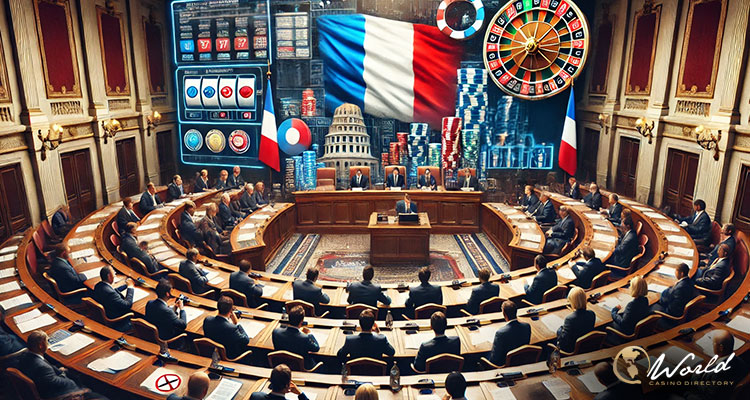France’s plan to legalize online casinos has been put on hold following significant opposition from industry stakeholders and regional authorities. The government, under Prime Minister Michel Barnier, initially included an amendment to the 2025 budget that would have introduced online casino legislation, but this proposal has been shelved to allow for further consultation. The decision was announced by Budget Minister Laurent Saint-Martin, who cited the need to address concerns raised by physical casinos and local representatives.
The amendment, part of the government’s broader effort to modernize the country’s gaming laws and raise tax revenue, would have aligned France with most other European Union member states. Currently, France and Cyprus are the only two EU countries where online casinos remain illegal. However, the government has acknowledged the need to reevaluate the proposal to avoid the potential negative consequences highlighted by opponents.
Opposition from Casino Operators and Regional Stakeholders
One of the most vocal groups against the proposal is the Fédération Addiction, a network of addiction specialists and professionals. They argue that legalizing online casinos would exacerbate the issue of problem gambling, which already affects a substantial portion of the population. In 2019, nearly 1.4 million French citizens were considered at risk of excessive gambling, with about 400,000 identified as pathological gamblers. The organization, quoted by RFI, described the amendment as “irresponsible and contrary to public health priorities.”
Real-world casino operators have also expressed grave concerns about the impact that online casino legalization could have on their businesses. According to Grégory Rabuel, the president of the Casinos de France association, the introduction of legalized online casinos could reduce the revenue of land-based establishments by up to 30%, leading to the closure of approximately 30% of physical casinos and putting 15,000 jobs at risk, according to The Connexion. Rabuel referred to the move as potentially signing the “death warrant” for many traditional casinos in France.
Despite the concerns, proponents of the legislation have pointed out that a sizable illegal online casino market already exists in France. Estimates from the French national gaming authority, the Autorité nationale des jeux (ANJ), suggest that this black market generates between €748 million and €1.5 billion annually. Advocates argue that legalizing and regulating online casinos would provide a way to bring this revenue under state control, with plans to impose a gross gaming revenue (GGR) tax of 55.6% on licensed operators.
Pushback Leads to Government Reassessment
The backlash against the proposal was swift, with approximately 130 French mayors penning an editorial in Le Figaro to express their opposition. They argued that the move could have unintended consequences, including opening a “Pandora’s box” of increased gambling addiction and financial instability for the casino industry. The editorial urged the government to reconsider and protect the interests of land-based casinos by ensuring any new laws would not disadvantage them.
Minister Laurent Saint-Martin responded by announcing that the amendment had been withdrawn from the current budget discussions. He emphasized the need for further dialogue to address the concerns raised by regional leaders and the casino industry. “We must not make mistakes. We must ensure that it doesn’t harm certain stakeholders, especially land-based casinos,” he stated during a radio interview.
While the government has temporarily postponed its plans, the issue of online casino legalization is expected to remain on the agenda. The administration retains the authority to revisit the legislation in the future, potentially with revised measures that balance tax revenue generation, harm reduction efforts, and protections for physical casinos.



